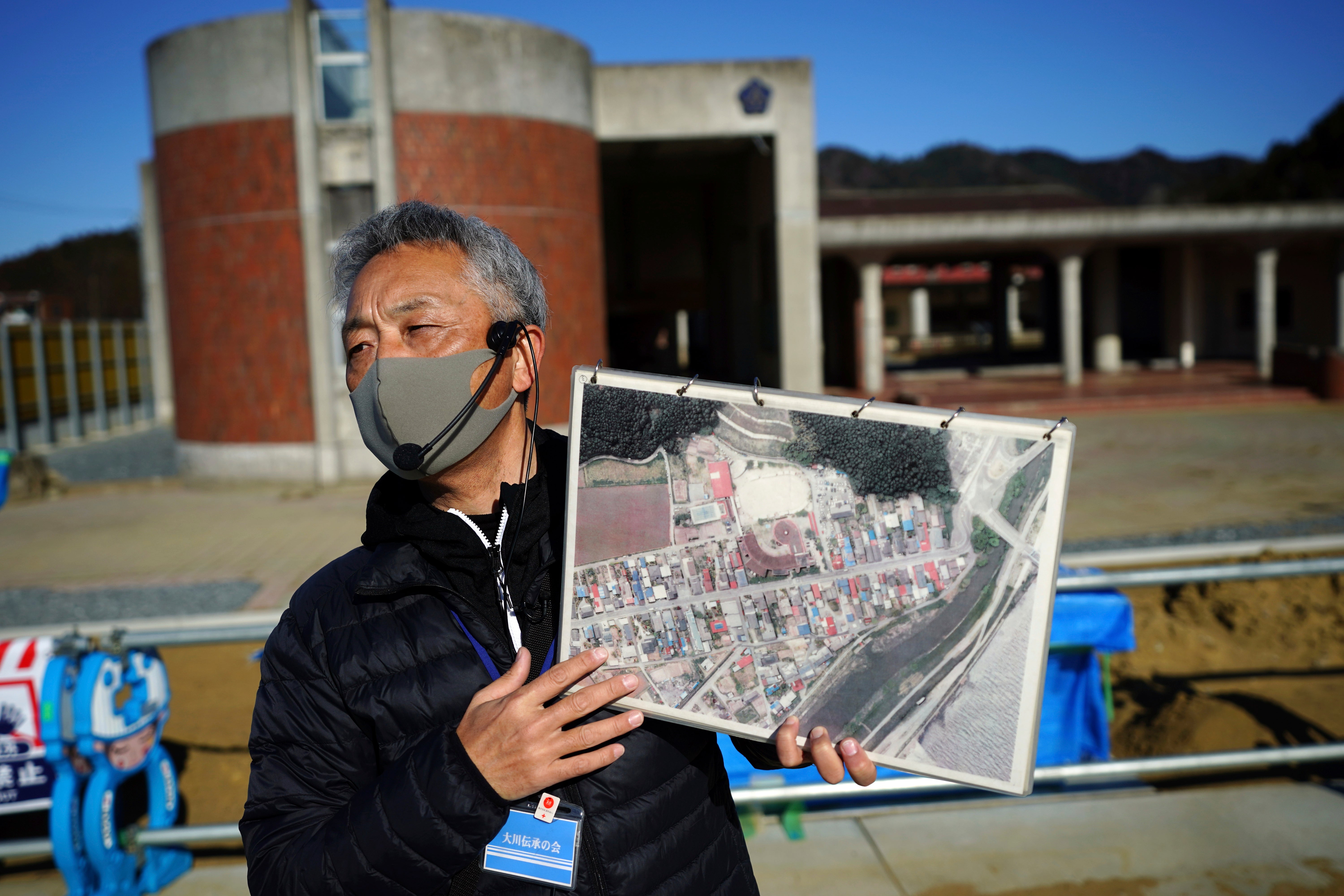Olympic torch relay poignant for Japan tsunami victim's dad
When Noriyuki Suzuki runs in the Tokyo Olympic torch relay, he won’t be alone

Your support helps us to tell the story
From reproductive rights to climate change to Big Tech, The Independent is on the ground when the story is developing. Whether it's investigating the financials of Elon Musk's pro-Trump PAC or producing our latest documentary, 'The A Word', which shines a light on the American women fighting for reproductive rights, we know how important it is to parse out the facts from the messaging.
At such a critical moment in US history, we need reporters on the ground. Your donation allows us to keep sending journalists to speak to both sides of the story.
The Independent is trusted by Americans across the entire political spectrum. And unlike many other quality news outlets, we choose not to lock Americans out of our reporting and analysis with paywalls. We believe quality journalism should be available to everyone, paid for by those who can afford it.
Your support makes all the difference.When Noriyuki Suzuki runs in the Tokyo Olympic torch relay, he won't be alone.
Every stride he takes will be in memory of his daughter, Mai, as well as 73 other students and 10 teachers from Okawa Elementary School who died in the massive earthquake and tsunami that devastated northeastern Japan 10 years ago. More than 18,000 people overall died in the tragedy.
The relay will start March 25 from Fukushima prefecture, the heart of the area that was hit by the disaster.
“I want to run with Mai, not just myself," Suzuki said. "I want to run with all the children here.”
Since the March 11, 2011, disaster, Suzuki has spoken with people who have visited the old school in northeastern Miyagi prefecture, talking about the the importance of having an evacuation plan — and following it.
He believes his daughter, who was 12 years old at the time, and the others would still be alive had teachers led the students away from the tsunami, and not unknowingly toward it.
“Disasters will absolutely happen, so things will break," Suzuki said. “But people can be saved.”
Suzuki found his daughter two days after the disaster. He saw a shoe protruding from the soil and started digging with his bare hands. As he dug in the cold, he unearthed the entire shoe with his daughter's name written on the back — Mai.
“Our Mai wore glasses,” he explained. “When I found her, she was wearing her glasses. I thought if I shook her, she would wake up. ‘Mai, Mai,’ I said while tapping her cheeks and shaking her body. But she wouldn’t wake up.”
Suzuki continued to recount his personal tragedy in a frank way that no parent should ever have to. He recalled coaching the school's basketball team and running around with Mai and her teammates.
“When I looked closely, there was dirt in her nose and ears,” he said. "It can only be called cruel. I can’t put into words how I felt at that time.”